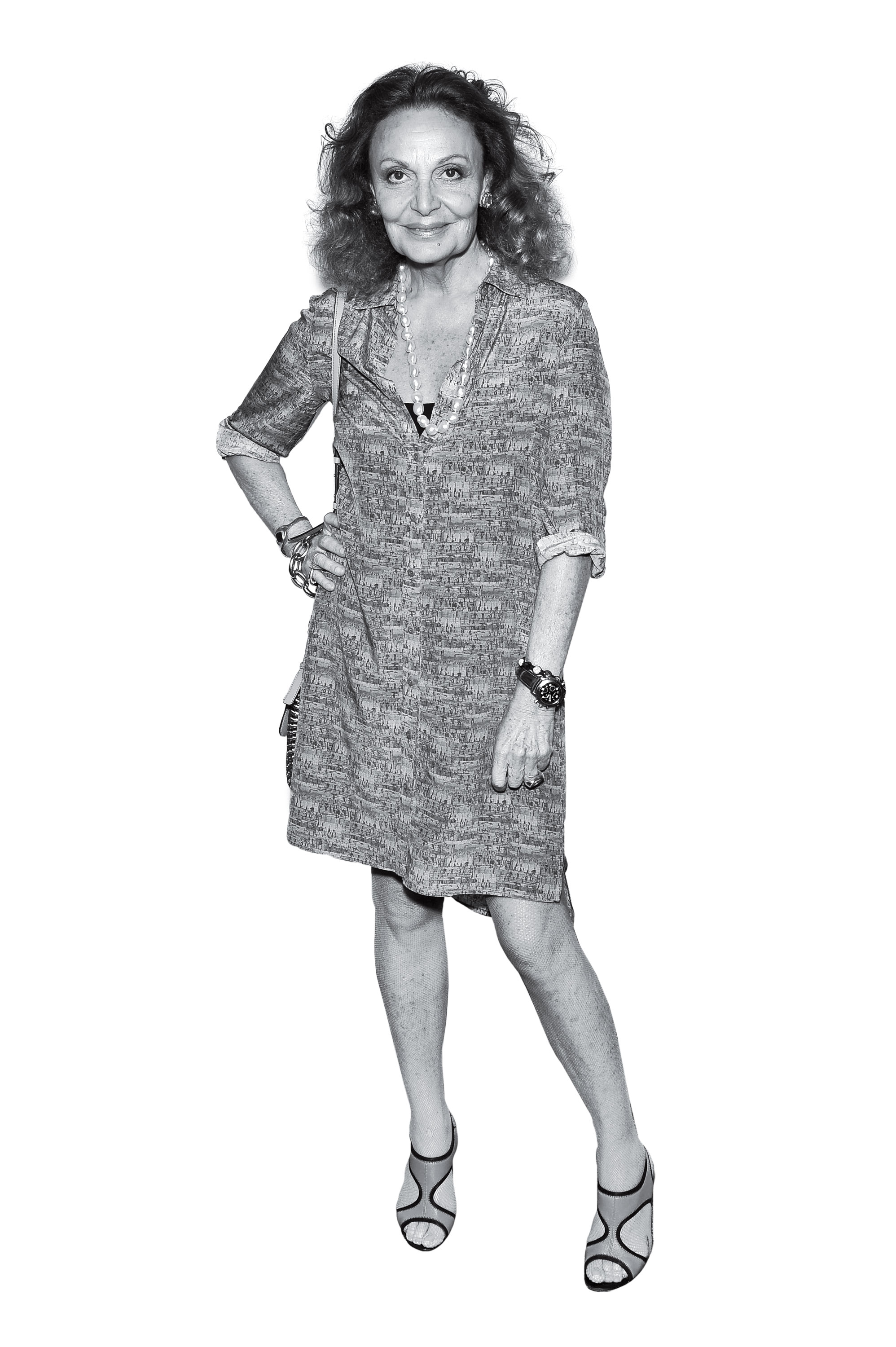
In your new memoir, The Woman I Wanted to Be, you express a surprising amount of insecurity for one so successful. Why did you feel insecure?
Listen, I am not an insecure person. But there are still days that I feel like a total loser. I don’t know anyone successful who doesn’t feel that way, because that also creates the fire and the need to achieve.
Do you think that your mother’s time in Auschwitz and Ravensbrück affected the way she raised you?
Oh, my God. So much. If you have a mother who tells you that God saved her life to give you life and that you are her flag of freedom, that’s a huge responsibility. Fear was not an option, you know. She put me in a closet when I was afraid of the dark. I mean, now it would be considered abuse, but it’s not. I’m so happy I had a mother like that.
Your son told you he wished you had been at more soccer games. Would you raise your kids differently if you had a do-over?
I could never be a soccer mom no matter how much I tried. I am sorry, Alexandre, I was not that. But I was something else, you know?
Your fantasy was to have a man’s life in a woman’s body. What did you mean by that?
It means you work and you’re independent and you can pay for the bills and you can decide. All of those things were superimportant for me. I got that very early on, and I still love that. There’s a side of me that’s a little bit of a cowboy.
I know you’ve taken a lot of risks with your business and your brand, but are you sure about your new reality show?
Absolutely. I’m fascinated with the beginning of your [working] life, because that’s when you can make so much difference. In this show, eight girls come into the company and learn everything, and one of them will become a brand ambassador. One of the things that I don’t like in those shows is that the bitch wins and, you know, fake tits make you happy. Our show is fun, informative, and I managed to pack some empowering messages in.
Do you think that your looks were a business asset?
I think everything that makes you is you, and some is asset and some is liability.
Do we care too much about beauty? I don’t know if you saw the reaction to the way Renée Zellweger looks now.
I don’t judge. I can only talk for what I feel and for my own experience. Sometimes you see faces that, I mean, how do you live with a face like that? But then I know that a lot of people look at me and they don’t understand why I didn’t do [surgery].
You’ve had many lovers, and mostly you broke the relationships off. What’s the best way to leave a man?
To leave a man, you have to be very thoughtful and very nice to them. I think that it’s important to keep a loving relationship with your exes–it doesn’t always come in the moment. My father, because he loved me unconditionally, made me very comfortable with men. And not needy. That’s the thing with men: not to be needy. The most important relationship in life is the one you have with yourself. And if you have that, then any relationship is a plus and not a must.
You write that when you first got together with your now husband Barry Diller, no one had ever known him to be with a woman before. Are we too rigid in our modern classification of sexuality?
I think that what happens in your private life is private. And yes, I think that people make big classifications and, you know, nothing is ever black and white. There’s a lot of shades of grays.
Did you ever consider changing your name to Diane Diller?
Oh! No. No. Actually no.
More Must-Reads from TIME
- Cybersecurity Experts Are Sounding the Alarm on DOGE
- Meet the 2025 Women of the Year
- The Harsh Truth About Disability Inclusion
- Why Do More Young Adults Have Cancer?
- Colman Domingo Leads With Radical Love
- How to Get Better at Doing Things Alone
- Michelle Zauner Stares Down the Darkness
Contact us at letters@time.com